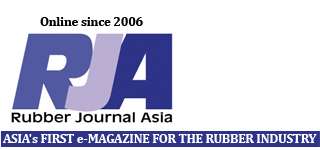 Lightweight construction and the absence of engine noise in electric vehicles (EVs) make tyre rolling noise more noticeable inside the cabin. Depending on the road surface and speed, this noise can be perceived as significantly more intrusive and unpleasant compared to combustion vehicles. Modern electric vehicles are often equipped with tyres that have an acoustic polyurethane (PU) foam lining on the inside. These so-called “Silent Tires” significantly reduce noise emissions both inside the vehicle and in the surrounding environment, ensuring a considerably improved driving experience.
Lightweight construction and the absence of engine noise in electric vehicles (EVs) make tyre rolling noise more noticeable inside the cabin. Depending on the road surface and speed, this noise can be perceived as significantly more intrusive and unpleasant compared to combustion vehicles. Modern electric vehicles are often equipped with tyres that have an acoustic polyurethane (PU) foam lining on the inside. These so-called “Silent Tires” significantly reduce noise emissions both inside the vehicle and in the surrounding environment, ensuring a considerably improved driving experience.
This simple solution concept presents tyre manufacturers worldwide with a complex and demanding task: a second logistics line must be integrated into tire factories to transport the lightweight but high-volume foam to the “tyre wedding” at the end of the production line. This requires substantial space for logistics handling and multiple stages of intermediate storage for the foam. Numerous additional manual or semi-automatic steps are required for logistics, cutting, adding adhesives and inserting the foam into the tyre. And finally, for each tyre produced, the appropriate foam must be provided “just-in-sequence”. As a result, the manufacturing costs of a tyre increase by up to 25% and it is often impossible to integrate the technology into existing tyre plants. In addition, there are significant volumes of waste generated from the off cuts of the polyurethane foam pieces.
Technology firm Henkel and 4JET are now introducing a new process to produce silent tyres that solves these challenges. In the innovative Laser-Fit process, a tailor-made acoustic foam is produced directly inside the tyre from liquid starting materials, at the end of the tyre line. This method eliminates the just-in-sequence complexity, time-consuming logistics and manual process steps, while also giving the tyre manufacturer greater freedom in adapting the foam`s geometry and volume to the tyre type hence also reducing waste generation.
This direct foam process, which has long been established in other industries and applications, is made possible by the patented foam activation process using a laser after the foam has been applied. Similar to a yeast dough, the foam forms an air-impermeable skin on the surface. This skin minimises the penetration of sound into the open-pored acoustic foam and prevents sound absorption.
Dr. Rainer Schönfeld, Global Market Strategy Head in Henkel`s Automotive Component business unit, explains: ”Our new to market Loctite Laser-Fit acoustic foam achieves its sound absorption effect through a large inner surface and a pore design specifically tailored for tyre noise suppression. Without 4JET`s laser activation process, which precisely removes the foam skin, the majority of sound waves would be reflected off the foam surface instead of being absorbed.”
George Kazantzis, Global Head of Henkel`s Automotive Components business unit, adds: “This revolutionary direct-foam-to-tyre technology represents our joint commitment to innovation and sustainability. By eliminating the transportation of pre-fabricated foam and reducing cutting waste, we will enable our customers to lower their carbon footprint.”
